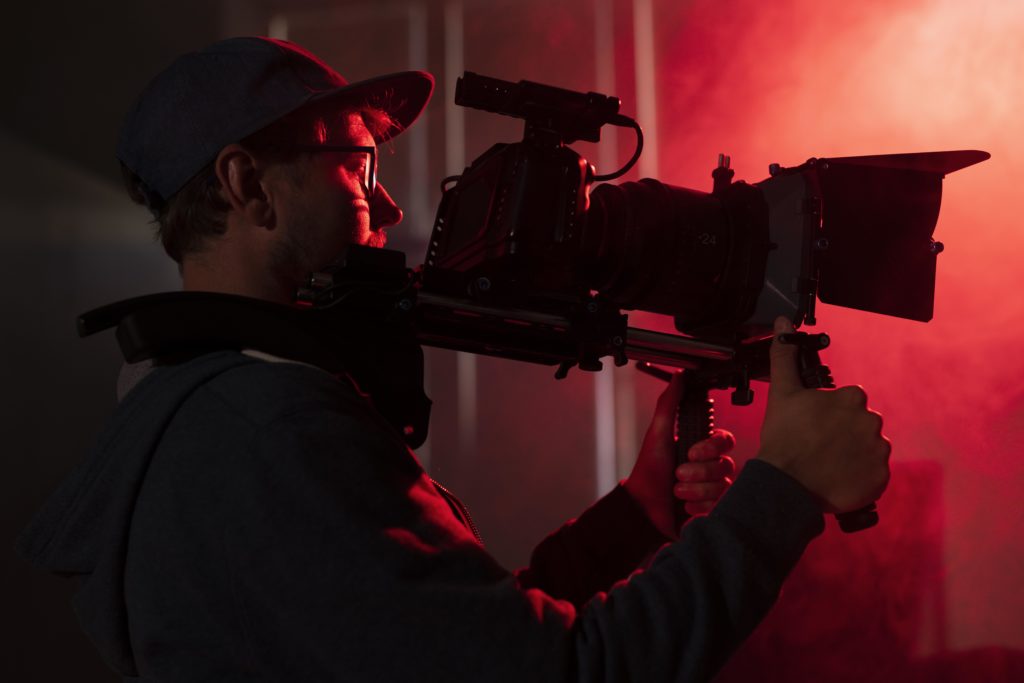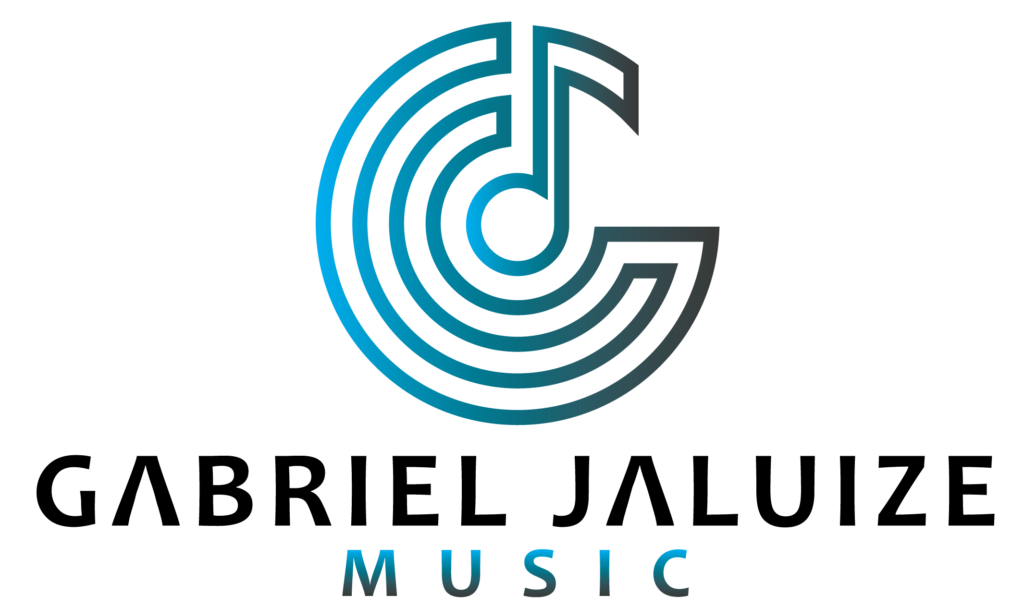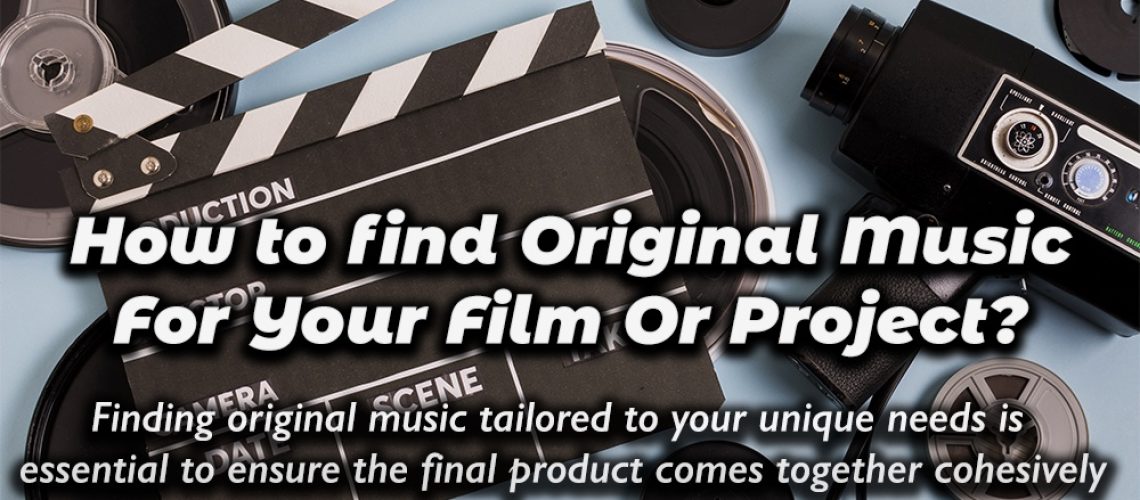Finding original music tailored to your unique needs is essential to ensure the final product comes together cohesively. Music is one of the most influential aspects of a film, video game, or audiovisual project and allows viewers to get a comprehensive understanding of the mood and the energy, and even helps shape emotional responses. In some cases, the film’s soundtrack becomes just as memorable as the film. In addition, by choosing the correct music, you will be able to easily communicate countless unspoken elements of the project like setting, narrative developments, and theme. While finding this uniquely tailored music can be difficult in some cases, below are some helpful guidelines to assist you in finding music that is a perfect fit for you and your unique needs.
How To Get Started
Beginning the process of searching for music for your film should occur once the filming has finished. Specifically, the timing and flow of scenes are no longer in the editing stage. Once this has taken place, the music search can begin. Some of the best places to start are with local musicians or music libraries online. If you have a larger budget, you may be able to hire a music supervisor that will handle these tasks for you. Specifically, they will reach out to their clientele of composers and musicians to create original music.
Often, this is too high of a price point for those making independent films. Fortunately, there are plenty of low to no-cost options available as well. Those seeking music for video games or other audiovisual projects experience a similar process. Ensuring that the project has finished is vital to the point where most modifications are no longer necessary. As with film, music supervisors are available to hire for further assistance.

Acquire Licenses
Depending on the avenue that you choose to explore, it is most likely that finding music will involve some licensing acquisition. For the use of pre-recorded music, there are two specific licenses you will need to ensure you won’t violate copyright terms. These are known as a synchronization license and a master use license. The purpose of the synchronization license is to provide you the right to synchronize your imagery with a piece of music.
The master use license allows you to reproduce the music recording in your film. Both of these licenses are equally crucial to acquire. Fees range dramatically and depend on the film’s purpose, the number of times the song plays, and where the film shows. Students who create films for educational purposes are more equipped to negotiate lower rates. The best way to acquire these licenses is by reaching out to the owner of the music you are viewing.
There is a large amount of royalty-free music available online for a low cost and sometimes free. Royalty-free is a type of music that does not owe an artist or composer royalties. Because of this, it does not cost the owner each time the song plays. For this reason, this music is often inexpensive or 18 free to use.
Some well-known examples of the many websites that provide royalty-free music are Soundstripe, Adobe Stock, SoundCloud, and FreeSound. If you are searching for royalty-free and copyright-free music, some websites specifically supply songs fitting this description. Uppbeat.io is one of the more popular sites for this purpose.
Hire A Composer
Although this option for finding original music is more costly than others, the payoff is significant for those with a budget that allows for it. Hiring a composer is an excellent option for projects that require music with a specific mood. Composers can create unique and dynamic pieces of music tailored to the needs of your project.
For example, one of the more well-known scores in the last two decades is the Harry Potter franchise. The score composer is John Williams, and he specializes in rich instrumentation within his music.
[Another example comes from the video game Grand Theft Auto. The composer of some of the most famous pieces from this game is Michael Hunter, a Scottish composer specializing in turntable technology.
Unique projects require equally special music to match. The American Society of Composers, Authors, and Publishers (ASCAP) is one of the many organizations that can assist in the search for a composer. They can help connect you with a composer that will fit your specific needs. They can also provide you with guidance regarding legalities and licensing. Because you hired a composer to create the film’s score does not automatically mean you own the score.
A composer agreement will need to be negotiated and signed to clarify this. In some cases, composers can retain the writing backend royalties while the purchasing entity will own the rights to the music itself. Again, prices range drastically for a composer depending on the required number of songs and the composer’s experience.
Laws and regulations in the music industry are strict. It is crucial to understand the legalities to avoid penalization for using certain songs or scores in your film. Even with royalty-free music, there is still a risk of violating copyrights depending on the specific situation. Lawsuits regarding illegal music use have become even more severe in recent years.
Often, settlements range between 5-6 figures. A small or independent project also does not guarantee safety from lawsuits. Reaching out to the organization or creator of the music you desire using is often the most straightforward method to achieve clearance.Thankfully, there is a wide range of options available to filmmakers on the hunt for original music for their films. From hiring local musicians to well-known composers to a simple internet search, there are various options. Being conscious of your budget will help guide you to the most feasible option for your film.
Taking the time to search adequately for your music will have a huge payoff when the film and soundtrack fit together beautifully in your final product.

